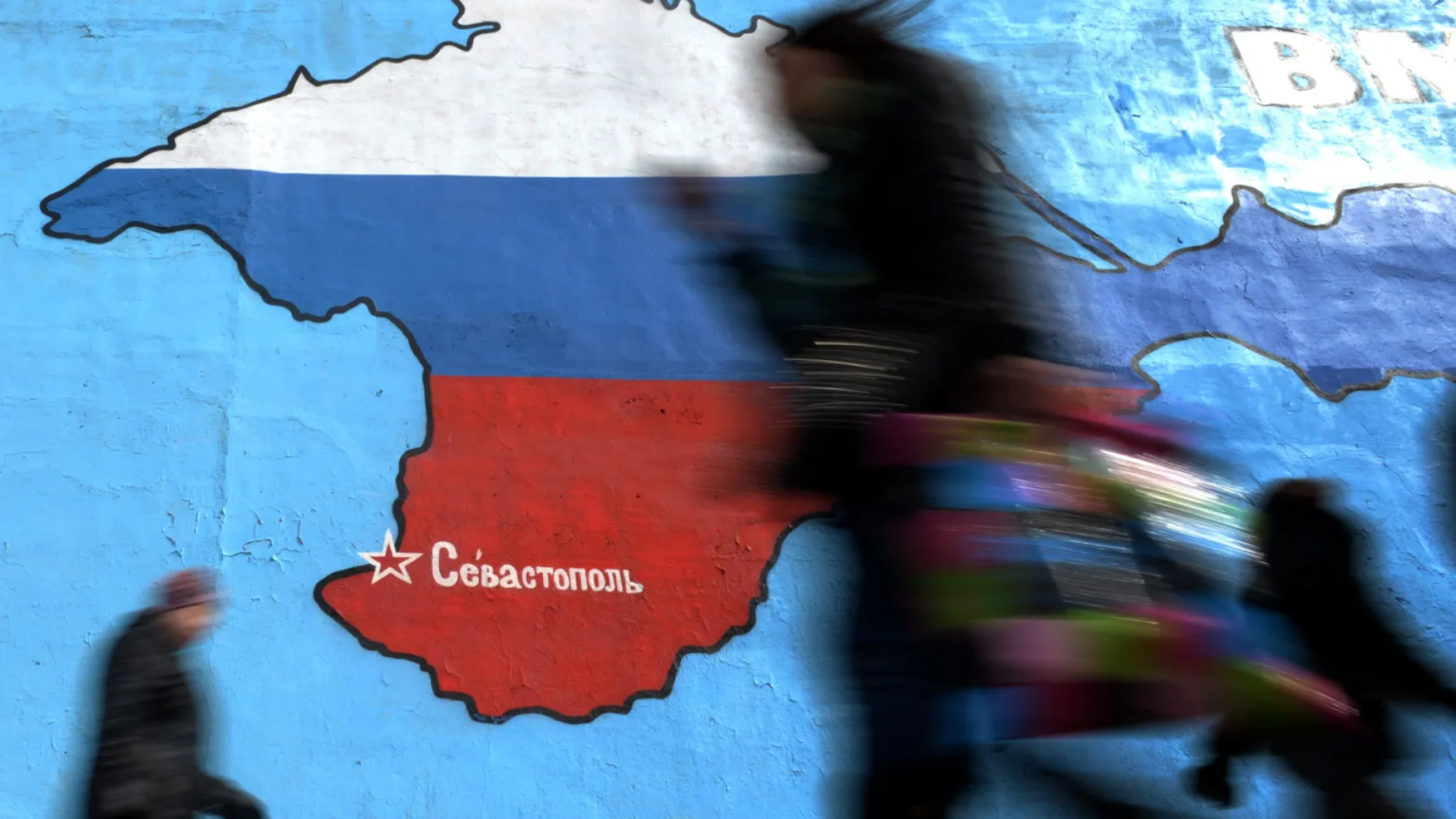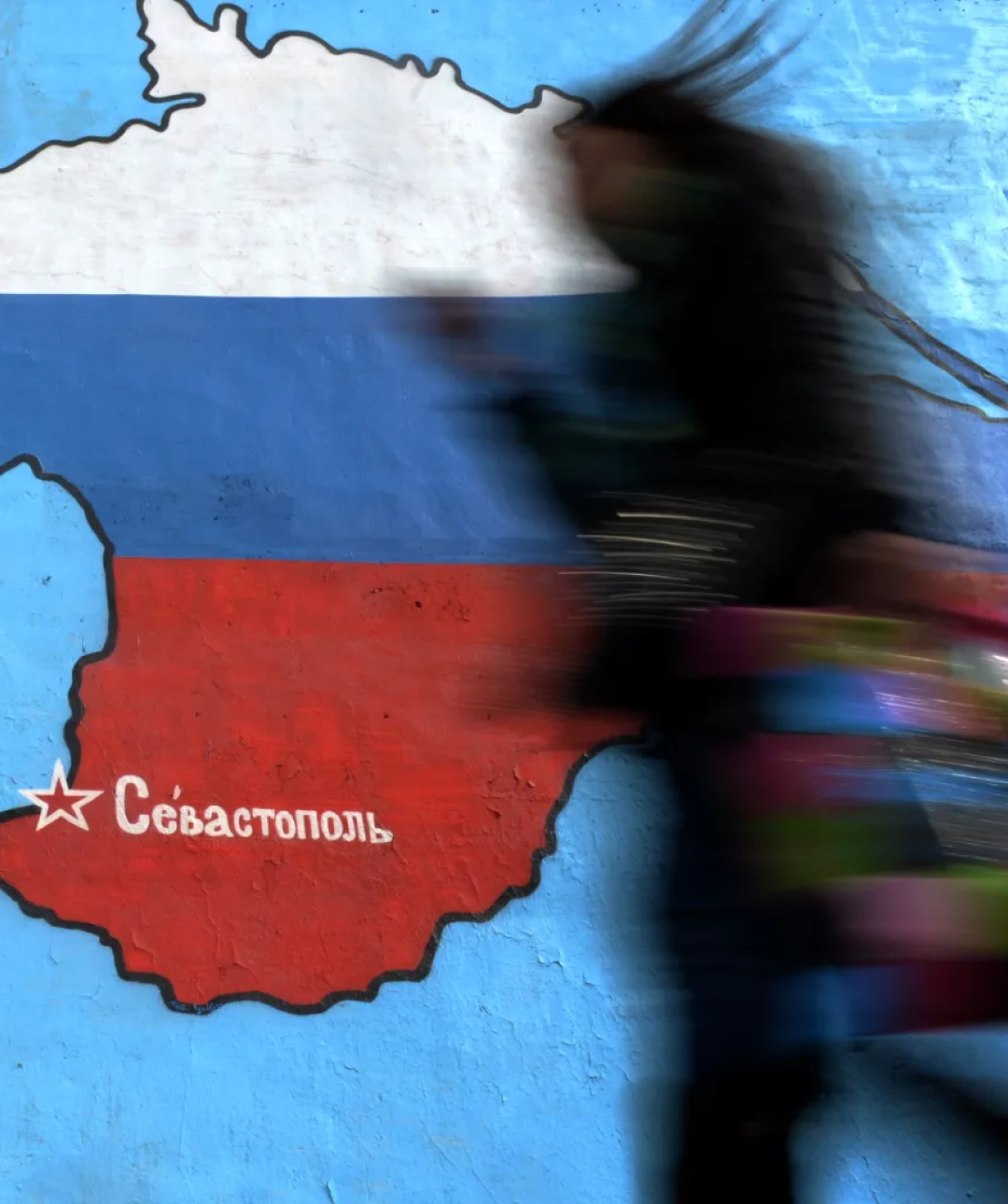

By Casey Michel
In December 2014, Russian President Vladimir Putin stood in the middle of the Kremlin’s St. George’s Hall, delivering his annual address to the country’s Federal Assembly. Nine months removed from his formal annexation of Crimea, the Russian president unspooled a historical overview of Crimea’s supposed importance to the Russian body politic.
Crimea, as Putin claimed, was far more than simply a wayward chunk of rightfully Russian land. Rather, the peninsula was the “spiritual source” of the entire Russian nation—a province that presented “invaluable civilizational and even sacral importance” for all Russians. The language mirrored Putin’s annexation announcement that March, when he’d claimed that “in [Russians’] hearts and minds, Crimea has always been an inseparable part of Russia.” As Putin saw it, Crimea stood as the Temple Mount of Russia—as a Russian “holy land.” And this was, Putin assured his listeners in December, “exactly how we will treat it from now on and forever.”
At the time, few in Russia appeared to disagree. Nor, likewise, did those in the West, who largely rolled over in the face of Russia’s initial invasion in 2014. Suckered by Russian propaganda surrounding the peninsula’s supposedly pro-Russian tilt and convinced that any Ukrainian assault on Crimea could spark potential military escalation, Western voices largely shied away from backing any attempts at returning the peninsula to Kyiv’s control. This was seen perhaps most spectacularly last month, when news emerged that Tesla CEO Elon Musk had undercut Ukrainian efforts to target the peninsula because of concerns any attack “could lead to a nuclear war.”
Those concerns were perhaps understandable, insofar as Russian officials have continually rattled a nuclear saber about protecting Crimea from any Ukrainian reclamation efforts. But now, as Ukraine unleashes near-daily assaults on the peninsula, the notion that Crimea presents some kind of Temple Mount—or even any kind of red line—for Russians has crumbled.
In the face of continued drone attacks, long-range missile fires, sabotage operations, and annihilation of military assets across Crimea, Russians have hardly treated the Ukrainian peninsula as some kind of sacred land. Rather than rushing to protect Crimea, Russians have instead begun fleeing the region en masse. Rather than seeing Russians lining up to enlist to aid the Kremlin’s defense of the peninsula, Moscow continues mooting the potential of a second, and far broader, forced mobilization. And rather than resulting in any kind of nuclear conflagration, Russians’ subdued reaction to the continued bombardment of Crimea has dissolved Putin’s claims that the peninsula is some kind of special, sacrosanct land. As McGill University professor Maria Popova recently posted on X (formerly known as Twitter), “Crimea isn’t special, let alone a red line.”
Continue reading at Foreign Policy
Casey Michel is the Head of the Combating Kleptocracy Program at the Human Rights Foundation.
Join us in helping save lives and stand up to tyranny.

Reach out with any questions or support needs.
Become part of our mission-driven team.
Find answers to commonly asked questions in our FAQs.
Hit enter to search or ESC to close